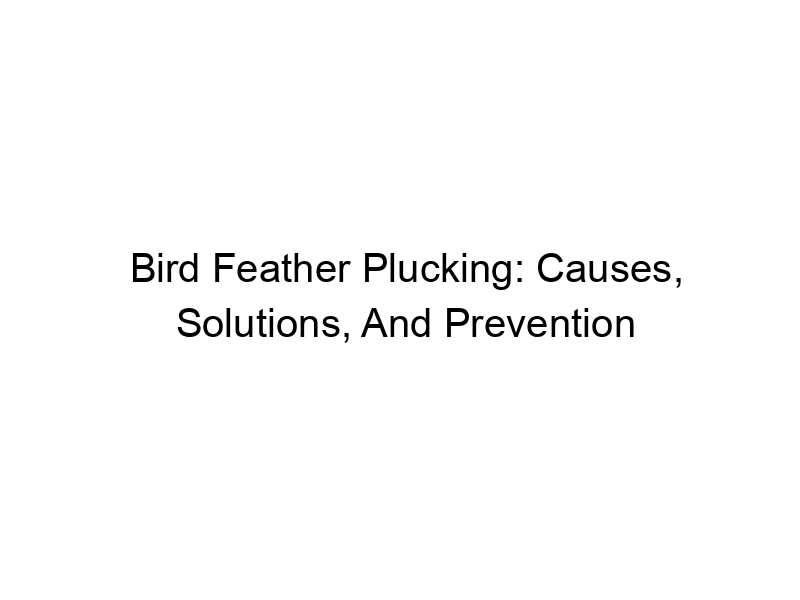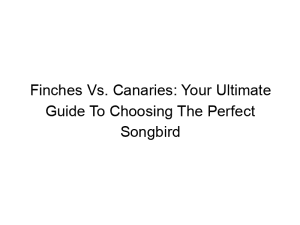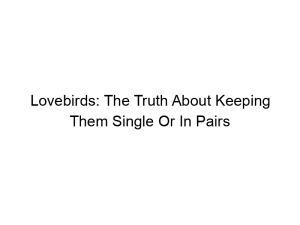Seeing your feathered friend plucking its feathers can be incredibly distressing. This comprehensive guide explores Why Does My Bird Pluck Its Feathers? Causes and Solutions, providing you with a deep understanding of the reasons behind this behavior and practical steps to help your bird. We’ll cover everything from underlying medical conditions to environmental factors, offering solutions to promote your bird’s health and wellbeing. You’ll learn about behavioral modifications, dietary adjustments, and veterinary care, empowering you to take action and support your bird’s recovery.
Feather plucking, also known as feather picking or self-mutilation, is a behavior where birds repeatedly pull out their feathers, often resulting in bare patches or even complete feather loss. This isn’t simply preening; it’s a compulsive behavior indicating an underlying issue requiring attention.
Feather plucking is a serious problem because
it leaves birds vulnerable to hypothermia, infections, and parasites. It can also be a symptom of deeper emotional or physical distress. Untreated, it can lead to severe health complications and even death.
Common Causes of Feather Plucking
Medical Conditions
Various medical conditions can trigger feather plucking. These include hormonal imbalances, skin infections (like bacterial or fungal infections), parasites (mites, lice), allergies (food or environmental), and nutritional deficiencies. A veterinary examination is crucial to rule out any underlying illnesses.
Environmental Factors
An unsuitable environment can contribute to stress and subsequent feather plucking. These factors include inadequate cage size, lack of enrichment (toys, perches, foraging opportunities), poor cage hygiene, loud noises, or exposure to drafts. Ensure your bird has a spacious, stimulating, and safe environment.
Nutritional Deficiencies
A diet lacking essential vitamins and minerals can lead to feather problems. Ensure your bird receives a balanced diet with appropriate nutritional supplements as recommended by an avian vet. Poor quality seed mixes are a frequent culprit.
Stress and Boredom
Boredom, loneliness, and lack of social interaction can lead to stress and feather plucking. Provide ample opportunities for mental stimulation, including interactive toys, puzzle feeders, and social interaction (with you or other compatible birds).
Behavioral Issues
Feather plucking can be a compulsive behavior, similar to anxiety or obsessive-compulsive disorder in humans. This often stems from underlying stress or trauma. Addressing the root cause is vital.
Pain and Discomfort
Physical pain, from an injury, infection, or arthritis, can cause a bird to pluck feathers in the affected area. Careful observation and a veterinary check are crucial.
Diagnosing the Root Cause
The Importance of Veterinary Examination
The first step in addressing feather plucking is a thorough veterinary examination. An avian veterinarian can perform blood tests, skin scrapings, and other diagnostic tests to identify any underlying medical conditions.
Behavioral Assessment
Observing your bird’s behavior is crucial. Note the frequency and location of feather plucking, any associated behaviors (like self-grooming), and changes in your bird’s routine or environment. This information helps pinpoint potential triggers.
Treatment and Solutions for Feather Plucking
Medical Treatment
If a medical condition is identified, treatment will focus on addressing the underlying problem. This may involve medications, topical treatments, or dietary changes. Follow your veterinarian’s instructions carefully.
Environmental Enrichment
Enriching your bird’s environment is crucial. Provide a spacious cage, various types of perches, interactive toys, and opportunities for foraging. A stimulating environment reduces boredom and stress.
Dietary Modifications
A balanced diet is essential. Consult your vet for recommendations on appropriate food, supplements, and avoiding potential allergens.
Behavioral Modification Techniques
Techniques like positive reinforcement, distraction, and counter-conditioning can help redirect your bird’s attention away from feather plucking. A veterinary behaviorist can provide guidance on appropriate methods.
Medication
In some cases, medication may be necessary to address underlying anxiety or compulsive disorders. This should only be prescribed by a veterinarian.
Using Collars or Covers
While not a long-term solution, Elizabethan collars or body covers can temporarily prevent feather plucking, allowing healing and reducing further damage. However, these should be used with caution and only as directed by a veterinarian.
Preventing Future Feather Plucking
Regular Veterinary Checkups
Regular checkups help detect potential problems early, before they develop into feather plucking. This is especially important for older birds.
Maintaining a Stimulating Environment
Continuously providing enrichment and changing toys regularly keeps your bird mentally stimulated and prevents boredom. Think puzzles, foraging toys, and new perches.
Providing Social Interaction
Ensure your bird gets adequate social interaction, either with you or a compatible companion bird. Lack of social interaction can be a major stressor.
Healthy Diet and Supplements
Maintaining a high-quality diet with appropriate supplements ensures your bird receives all necessary nutrients for healthy feathers and overall well-being.
Frequently Asked Questions
What are the early signs of feather plucking?
Early signs include small bald patches, particularly around the head and neck. You might also notice increased preening behavior that becomes excessive or destructive.
Is feather plucking contagious?
No, feather plucking itself isn’t contagious, but underlying medical conditions like mites or infections can be contagious among birds.
Can I stop my bird from plucking feathers myself?
While you can provide a supportive environment, it’s crucial to involve an avian veterinarian. They can diagnose the underlying cause, which is vital for successful treatment.
How long does it take to treat feather plucking?
Recovery time varies greatly depending on the cause and severity. Some birds improve quickly with environmental changes, while others may require long-term treatment.
My bird only plucks feathers in one area. What could that mean?
This often points towards a localized problem like an injury, infection, or irritation in that specific area. A veterinary checkup is essential.
What if my bird is severely plucked?
Severe feather plucking requires immediate veterinary attention. The bird is vulnerable to hypothermia and infection.
Final Thoughts
Feather plucking is a serious issue that requires prompt attention. It’s vital to rule out any underlying medical conditions through a veterinary examination. Creating a stimulating and enriched environment, providing a balanced diet, and implementing behavioral modification techniques are all crucial steps in helping your bird overcome this behavior. Remember, patience and consistency are key. With the right approach and professional guidance, you can significantly improve your bird’s health and happiness and help them regain a beautiful, full plumage. Don’t hesitate to seek professional help from an avian veterinarian; early intervention can make a significant difference in the recovery process. Your feathered companion deserves the best care, and addressing feather plucking is a crucial part of ensuring their long-term wellbeing.




